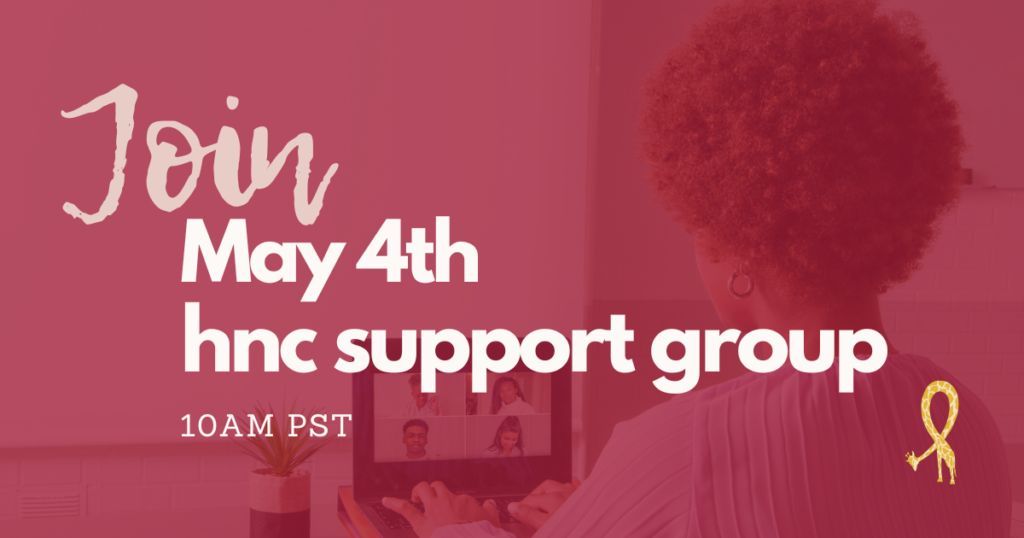The HNC Support Group, How You Can Benefit from Joining
If you’re facing Head and Neck Cancer, you don’t have go at it alone. Joining a support group like HNC Support can bring together people who are going through or have gone through similar experiences.
Get the Emotional Support You Need
Our support group may help to fill the gap between medical treatment and the need for emotional support. The relationship with a doctor may not provide the emotional support you need, and family and friends may not understand the impact of your disease or treatment. The HNC support group brings together people with shared head and neck cancer experiences, and help you bridge the connection between medical and emotional needs.
According to the Mayo Clinic, the common experience among members of a support group often means they have similar feelings, worries, everyday problems, treatment decisions or treatment side effects. Participating in a group provides you with an opportunity to be with people who are likely to have a common purpose and likely to understand one another.
Listen to Our Special Guests and Speakers
Many individuals from diverse medical and healing disciplines have taken time from their hectic schedules to join in. Doctor, Nurse, Speech Therapist, Dietitian, Journalist, Medical Office Specialist, Yoga Therapist, Research Scientist, Art Therapist, Medical Supply Vendor, Pharmacist, and Professor are just some of the “titles” that have joined our meetings as active participants.
All are welcome to our HNC Support Group!
On the first Saturday morning of every month, HNC patients and survivors gather, chat, share personal stories/experiences and gather helpful information from others. They are of different ages, gender and race, and accompanied by family, caregivers, and/or friends. But they all have one thing in common – they or a family member have been diagnosed with Head & Neck Cancer (HNC). They are here to participate in the Head & Neck Patient Support Group at USC, to encourage and to be encouraged.
Benefits of participating in a support group may include:
- Feeling less lonely or isolated
- Reducing distress, depression, anxiety or fatigue
- Talking openly and honestly about your feelings
- Improving skills to cope with challenges
- Staying motivated to manage chronic conditions or stick to treatment plans
- Gaining a sense of empowerment, control or hope
- Improving understanding of a disease and your own experience with it
- Getting practical feedback about treatment options
- Learning about health, economic or social resources
What If I Feel Nervous?
Feeling nervous is completely normal and when you join a new support group, you may benefit from simply listening. Over time, contributing your own ideas and experiences may help you get more out of the support group as well as help others overcome their anxieties about sharing.
Sign up for our next HNC support group here.
If you are a caregiver to a patient with head and neck cancer, please visit our Caregivers page to learn about our support group for caregivers.
Source: https://www.mayoclinic.org/healthy-lifestyle/stress-management/in-depth/support-groups/art-20044655




